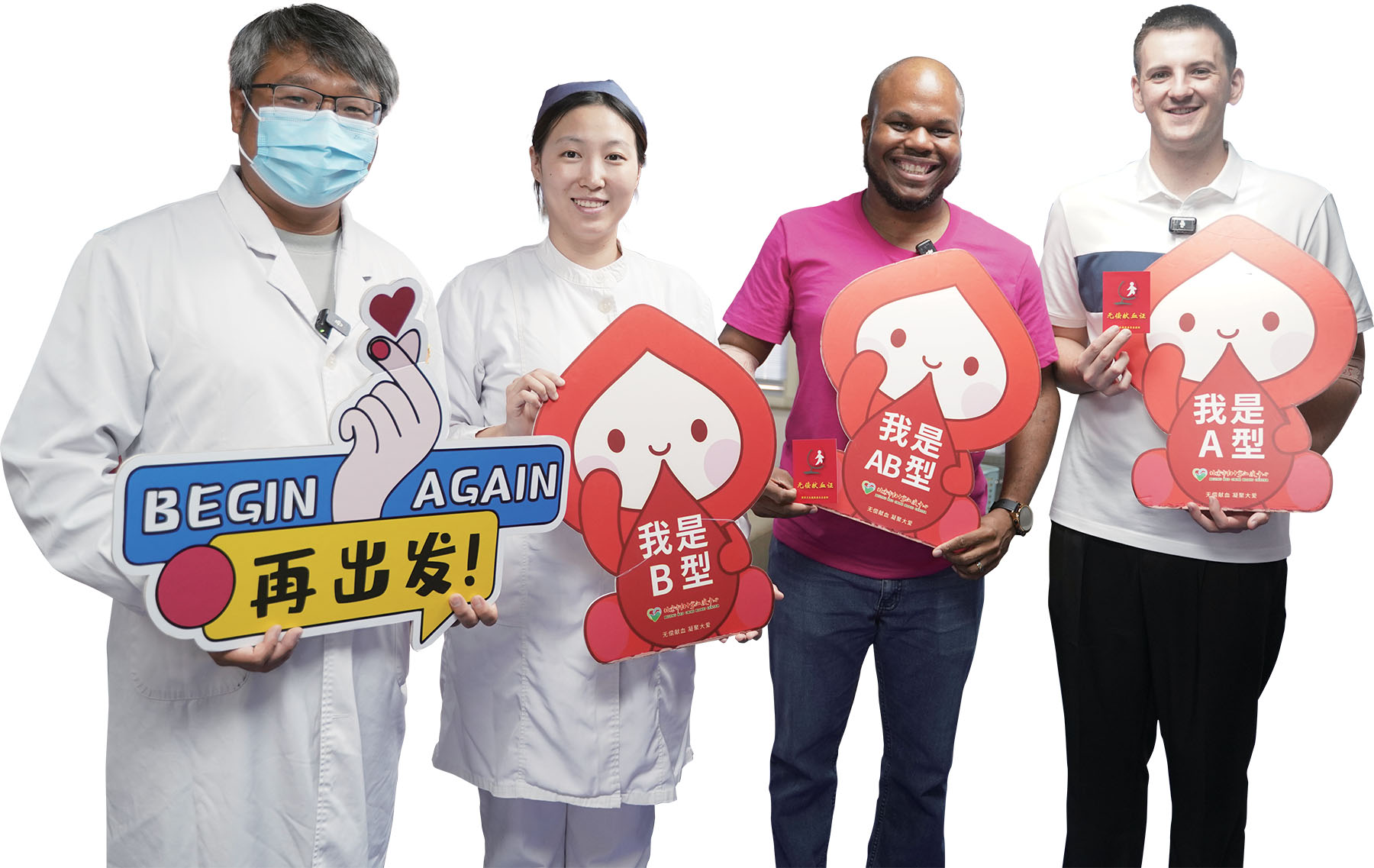The latest episode of Not Only About Us sees medical professionals from China and the US forging deep bonds through charitable acts and collaborative efforts to advance global healthcare.

"Transcending borders, race, and cultural backgrounds, we face a common enemy of humanity: disease," said Guo Chao, deputy director of thoracic surgery at Peking Union Medical College Hospital (PUMCH), in the latest episode of China Daily's Not Only About Us.
This episode focuses on the daily charitable acts and exchanges between medical professionals in China and the United States, demonstrating how these efforts by individuals and hospitals impact both countries and the world.
In this episode, Dylan Walker, a reporter for China Daily, donated blood for the 13th time in China. "The blood donated daily is far from enough," he said. "I once read in the diary of Lei Feng (1940-1962), a role model for selfless dedication, that 'A human's life is limited, but what they can do for the people is unlimited.' I was inspired, and I believe we need to start with the little things and gradually influence the people around us."
READ MORE: Need blood? Count on math teacher to help
This commitment to humanity and the connection between China and the US are also reflected in the growing collaboration among a group of medical professionals.
In June, the "Bond with Kuliang: 2024 China-US Youth Festival" took place in Kuliang, East China's Fujian province — a special and monumental location in Sino-US medical history.
At the end of the 19th and the beginning of the 20th century, as ports opened up, groups of Americans settled in Kuliang and gradually became part of the local community. Among them was Edward Bliss (Chinese name: Fu Yihua), who held a medical PhD and helped locals with childbirth and treated diseases like malaria.
During the event, among those invited were 12 doctors from PUMCH and 11 medical students from universities including the University of Chicago and Johns Hopkins University in the US.
A group of orthopedic doctors from the US also participated in professional ward rounds and academic exchanges at PUMCH.
Founded by the Rockefeller Foundation in 1921, PUMCH is a testament to the long-standing and ongoing cooperation between the two countries and has been fostering exchanges over the years.
"For the young US doctors, this experience allowed them to understand how different countries approach medicine and conduct research," Guo said. "It helped them realize that in the process of medical education, they can gain knowledge within a variety of cultural contexts."
Hui Shangyi, an attending physician in the anesthesiology department at PUMCH, pointed out that, in addition to the exchange event in Kuliang, the hospital has been actively fostering collaborations with medical institutions in the US.
"We send doctors to each other's hospital to share ideas and explore possibilities for future cooperation," she said.
This year, Guo has visited the US twice for medical and academic exchanges. During his visits, he learned about the curricular reform measures at the University of Michigan Medical School and observed the thoracic surgery department at the University of Chicago, where he noted their effective integration of in-school education and postgraduate medical training.
"The training period for medical professionals is relatively long because they learn through practice. This is a common problem that both countries face," said Guo.
He believes that by cooperating and constantly exchanging ideas in medical education, it's possible to "improve efficiency and safety during training".
On the US side, Walker mentioned that a traditional Chinese medicine (TCM) clinic near his hometown of Longmeadow, Massachusetts, has been gaining popularity, with many locals seeking remedies for issues like asthma.
"More and more foreigners are accepting and acknowledging the effectiveness and science behind TCM treatments. There's also a growing number of international students, including those from the US, coming to China to study TCM," said Walker.
ALSO READ: A passion to heal taken to new heights
Guo explained that TCM is a practical science, with its methods refined over thousands of years and proven effective.
"Like Western medicine, TCM has also evolved over the years. Today, TCM focuses more on developing methods with universal and broader impacts," he said. "As Chinese doctors practicing Western medicine, we've been developing treatments that combine both approaches and promoting them globally."
Guo highlighted the importance of cooperation between China and the US, as they are two of the most influential countries in the world.
"Our partnership will undoubtedly play a significant role in driving progress in the global medical industry," he said.
"The US has advanced medical technology and pharmaceutical research, while China has a large pool of experienced doctors and a rich heritage of TCM.Together, these strengths will inspire medical professionals from both countries, leading to collaborative efforts to combat common health challenges facing humanity."


